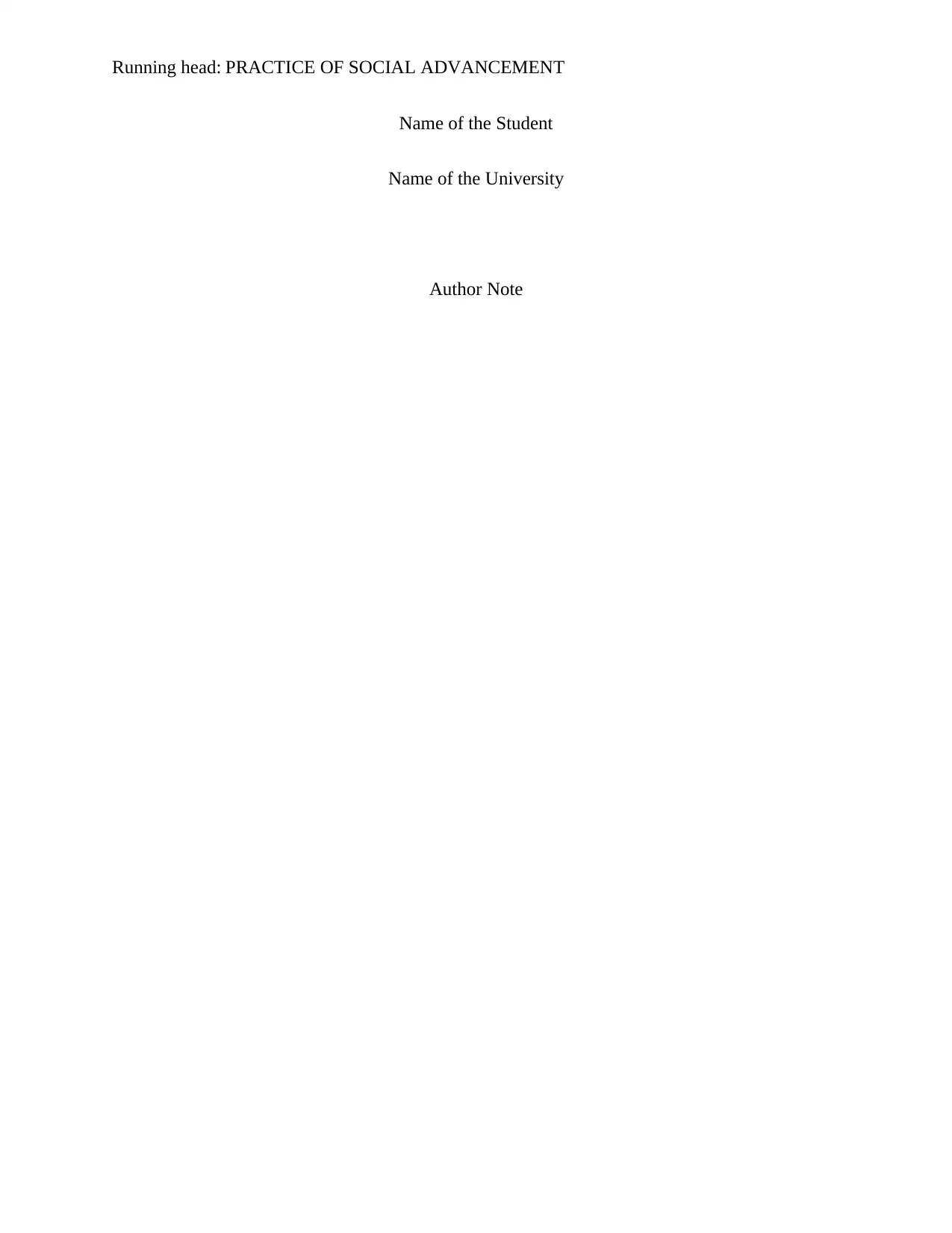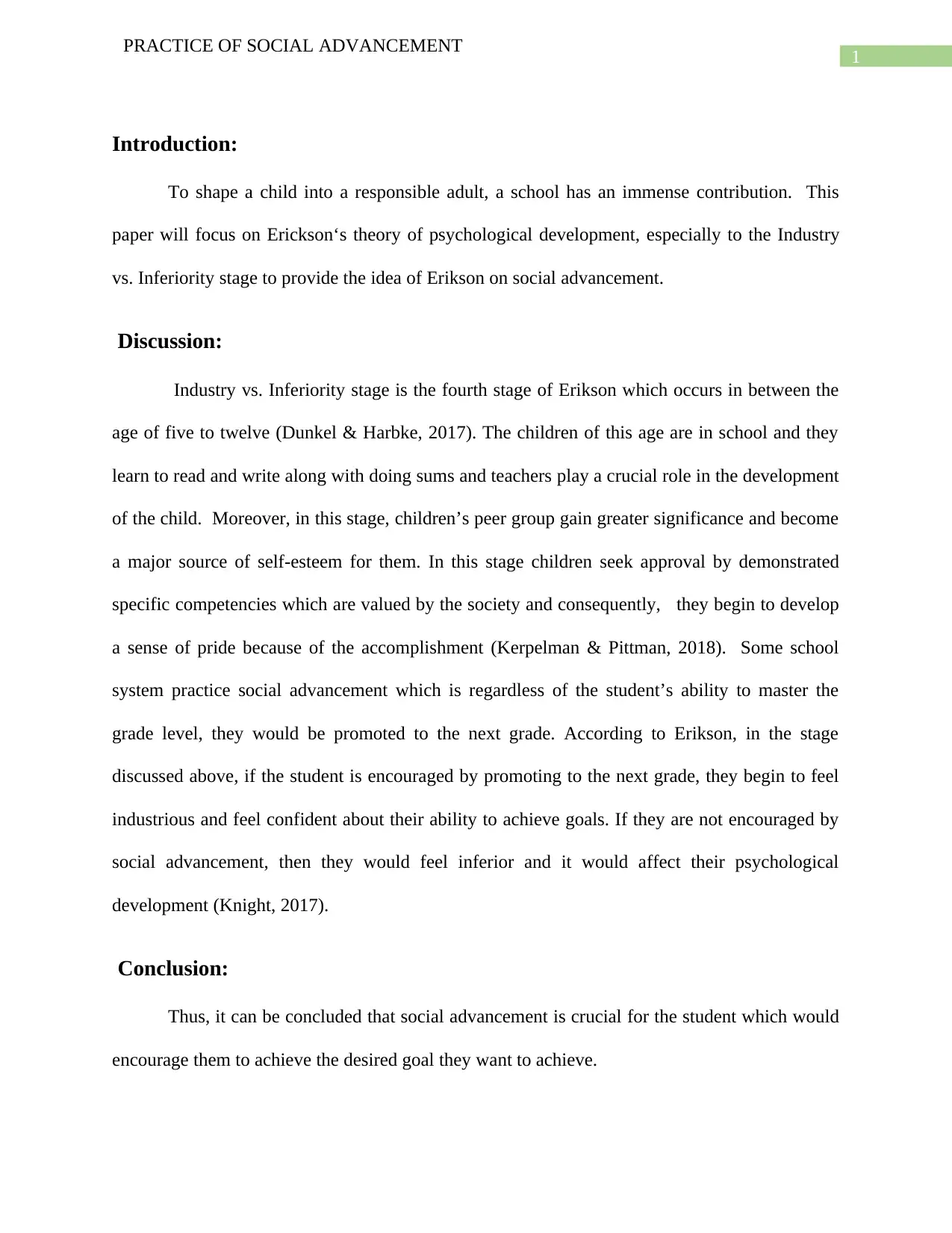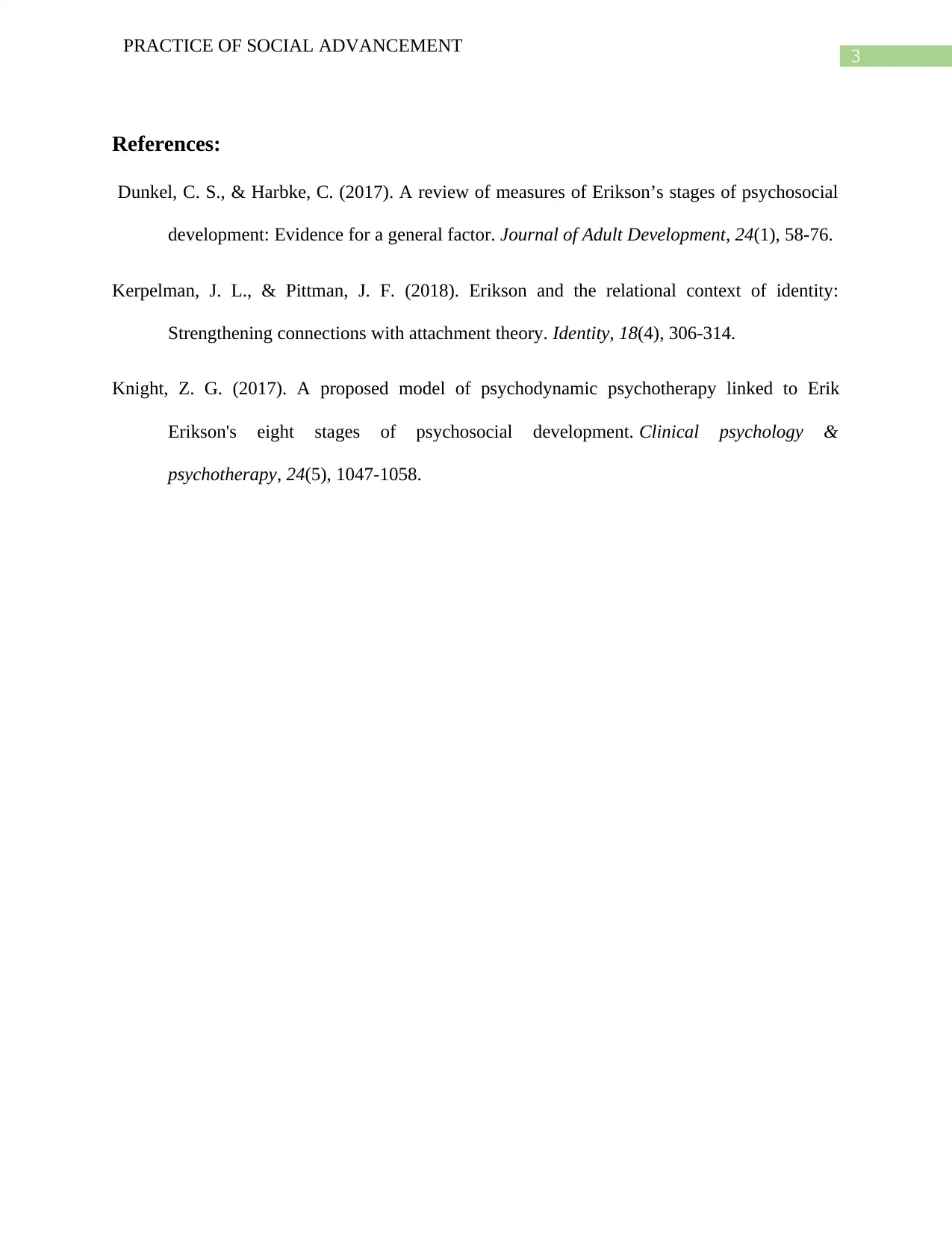The Impact of Social Advancement on Erikson's Theory of Development
VerifiedAdded on 2023/01/16
|4
|447
|85
Report
AI Summary
This report examines the relationship between Erikson's theory of psychosocial development, particularly the Industry vs. Inferiority stage, and the practice of social advancement in education. It explores how children's self-esteem and psychological development are affected by grade promotion and the encouragement they receive. The paper highlights that children's peer group gain significance and become a major source of self-esteem. The report concludes that social advancement is crucial for encouraging students to achieve their goals. The report also mentions the role of teachers and the importance of encouragement for children within the context of the Erikson's theory. The work also references relevant research on the topic.
1 out of 4











![[object Object]](/_next/static/media/star-bottom.7253800d.svg)